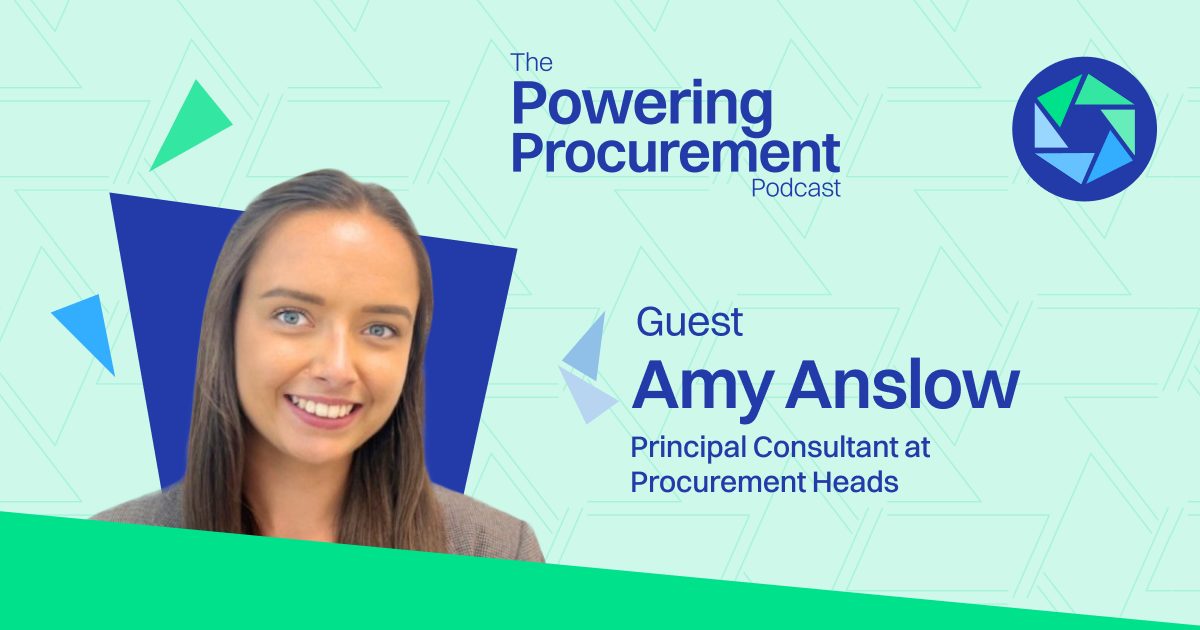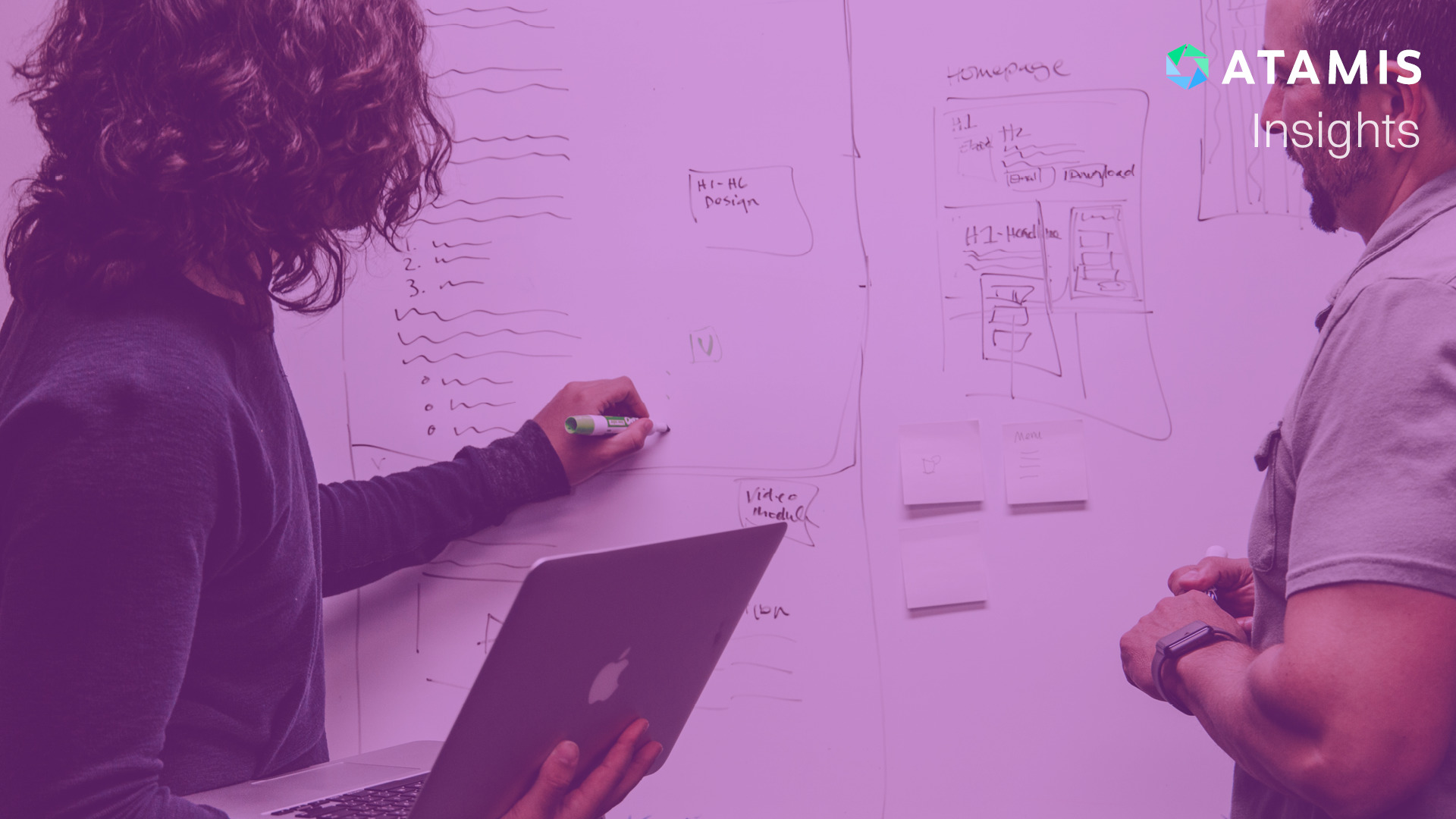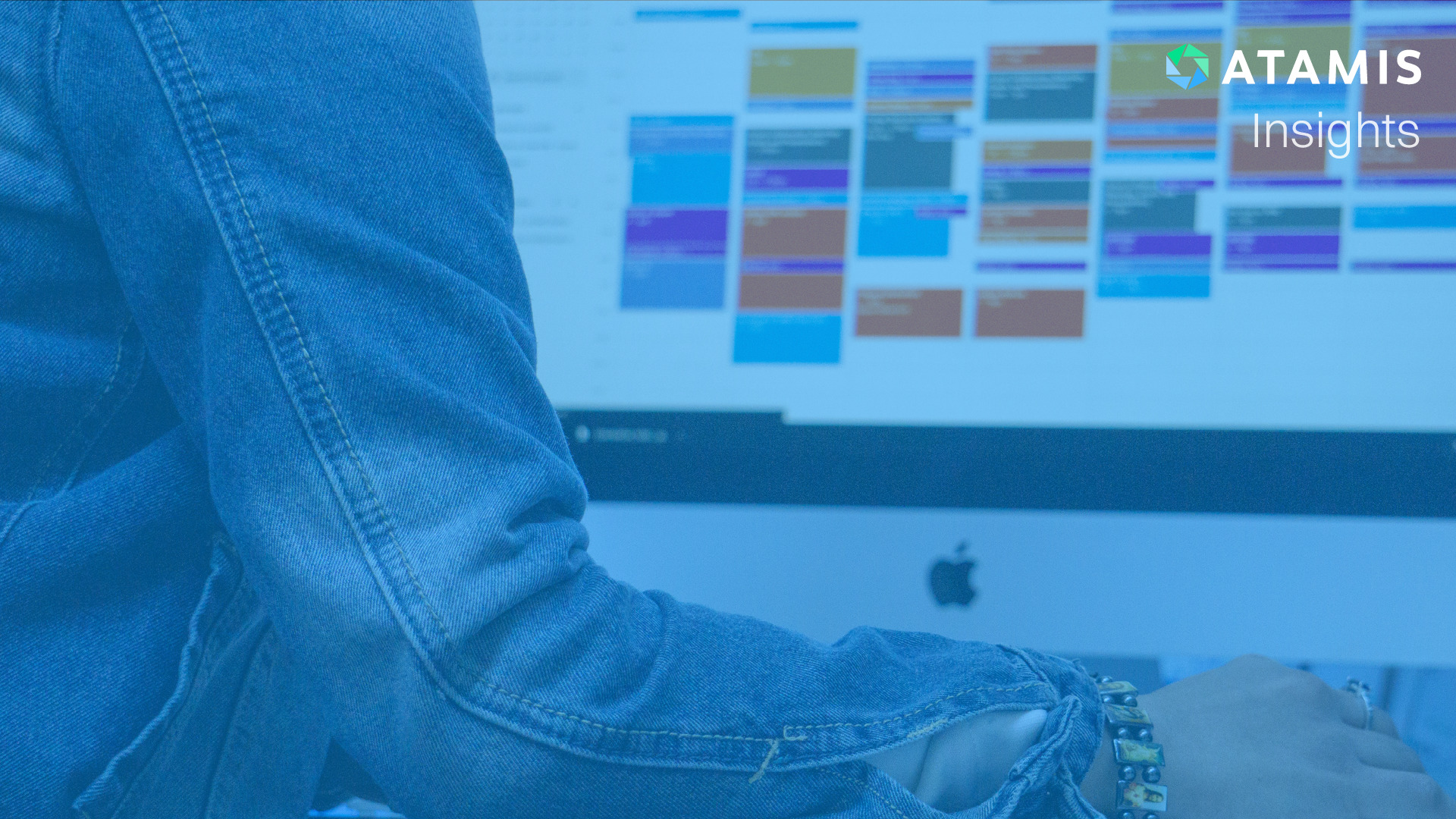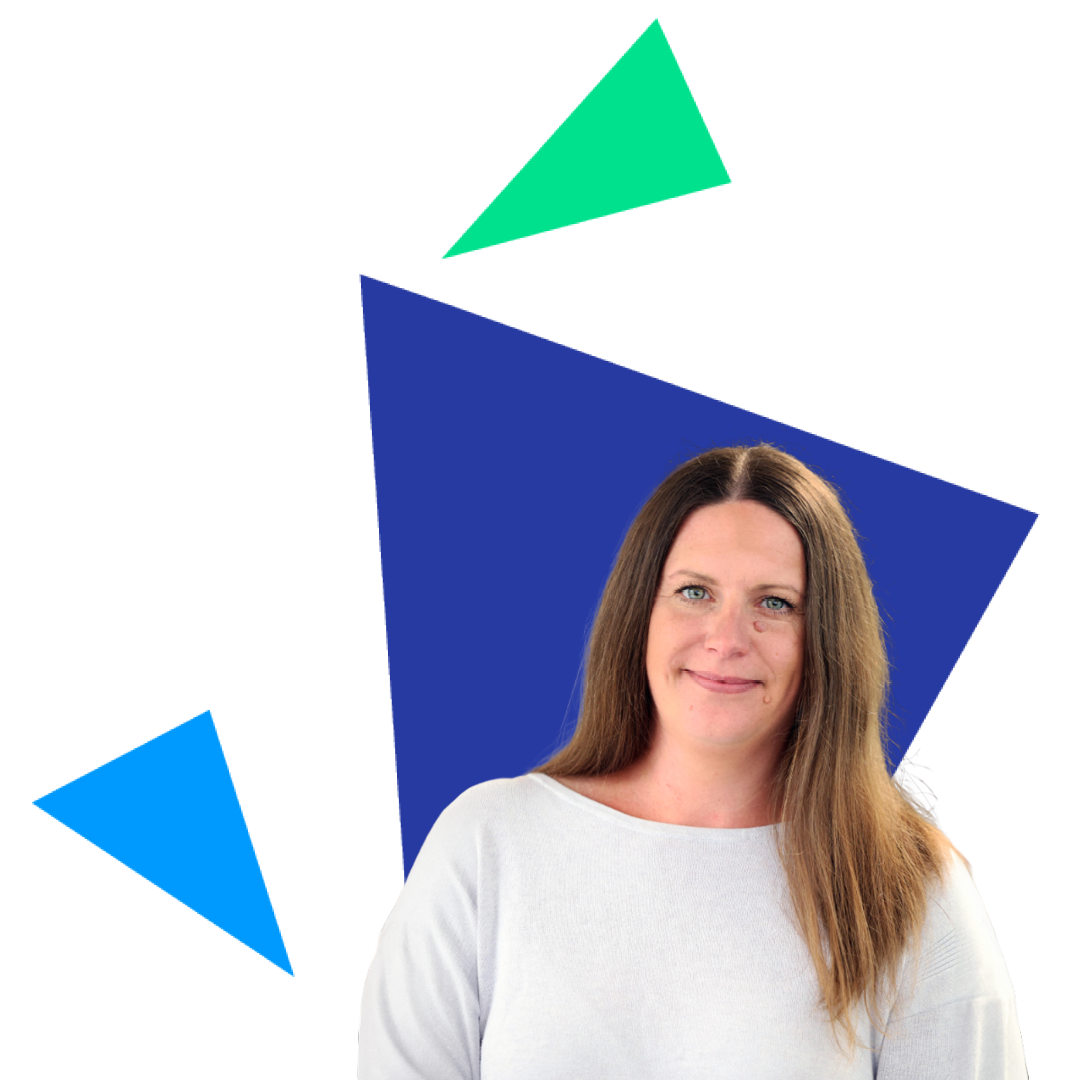“Procurement is a landscape of such diversity, and there are so many different disciplines and areas you can get into.”
In this episode of Powering Procurement, hosts Sian Lloyd and Gareth Burch are joined by Amy Anslow, Principal Consultant at Procurement Heads. Together, they dive into Amy’s journey into procurement recruitment and her insights into the evolving landscape of the industry. She highlights the importance of attracting top talent, tackling challenges like unconscious bias, and leveraging AI in recruitment.
Though Amy’s journey in procurement recruitment began just a few years ago, she’s already making a significant impact by helping organisations find the talent they need to thrive in an ever-evolving industry. Amy’s work is more than about connecting candidates and companies; it’s about shaping the future of procurement. With a strong focus on diversity, sustainability, and transparency, she’s helping procurement professionals and organisations adapt to new challenges like the upcoming Procurement Act and the growing demand for digital skills.
Find on Spotify
Find on Apple Podcasts
Watch on YouTube
Learn More
Are you looking for procurement software designed with you in mind?
Speak to our team today about transforming your procurement function.
Get a Demo
Read Full Episode Transcript
Read Full Episode Transcript
[00:00:00] Sian Lloyd: The Powering Procurement podcast is brought to you by Atamis, sourced to contract software designed to save you time and money. Hello, and welcome to Powering Procurement, a podcast by Atamis, where we unpack the world of procurement and supply chain management with the help of industry leaders. I’m your host, Char Lloyd, and this is our resident expert, Gareth Burch.
[00:00:24] Gareth Burch: Hi. After 20 years in procurement, I may be billed as an expert, but believe me, I’m here to learn too.
[00:00:31] Sian Lloyd: Each episode together with our expert guests, we’ll dive into specific challenges and opportunities facing the procurement industry today.
[00:00:40] Gareth Burch: And we’ll explore easy wins and longer term strategies to help you rise to the challenge of driving value through your work while showcasing the power of procurement.
[00:00:51] Sian Lloyd: So let’s get going. Welcome to Powering Procurement. Today, we are delighted to be joined by Amy Anslow, principal consultant at Procurement Heads, where she specializes in recruiting senior procurement professionals across a variety of industries. Now although Amy’s journey in procurement recruitment began just a few years ago, she’s already making a significant impact in helping organizations find the talent they need to thrive in an ever evolving industry.
[00:01:24] Gareth Burch: Amy’s work is not just about connecting candidates and companies. It’s about shaping the future of procurement. With a strong focus on diversity, sustainability, and transparency, she’s helping procurement professionals and organizations alike adapt to new challenges, like the upcoming procurement act and growing demand for digital skills. Today, we’ll explore Amy’s high insights into recruitment trends, the changing role of procurement professionals, and how organizations can future proof their talent strategies. Welcome to the podcast, Amy.
[00:02:06] Amy Anslow: Thank you very much. Thanks for
[00:02:07] Sian Lloyd: having me. Well, we’re really looking forward to talking to you today, Amy. And, um, as I said there in the introduction, it’s only really a few years ago that you began on this chapter, if you like. So it feels like a really good time to ask you about how things are going to start off with and, you know, why you got into this sector, procurement, recruitment. You know, what’s your perspective on the profession since you began a few years ago? So it’s going really well.
[00:02:37] Amy Anslow: I absolutely love, uh, the procurement world and sort of the expertise I’ve acquired within it. I think in terms of how I got into the profession itself, I kind of fell into recruitment as everyone tends to say. But when it comes to procurement side of things, I actually sort of got my passion from university. So I studied an international business management course and sort of supply chain and procurement was 1 module as part of that. And so historically, whilst at uni, I used to love doing exams. Well, I don’t love them. I used to do quite well when it came to the exam side of things. I always tended to to struggle when it came to the assignments. But when it came to procurement and supply chain, it was the 1st assignment they actually got a first class in. So I’m a big believer that you tend to do better in the things that you enjoy. So that was sort of where my my early passion came for procurement. I think the interesting thing and perception I had at that time was I actually thought about going into procurement myself. But the the thing that sort of put me off it is during during that sort of module, I learned a lot about the analytical side of procurement and how so the analytical skill set is very much needed. Now analysis and numbers was not my strong points. That kind of turned me away from going into myself, but I found it a very interesting subject. So when it came down to sort of considering opportunities either in finance recruitment or in procurement recruitment, it’s a bit of a no brainer for me to go into that procurement space because it is something that I found very interesting sort of early on in WITESOL studies. I think interestingly from that, obviously, the perceptions of procurement have changed from then to now in terms of that even analytical side of things. Like, obviously, if you wanna go into an analyst based position within procurement, you need to be very strong with your your analytical capabilities. But, actually, it’s not the the core skill set of any procurement role. So I think the initial perceptions I had on what was needed from the profession has definitely changed a lot since I’ve sort of learned more about it. And I think, interestingly, when I tend to speak to sort of my friends or or family and say, oh, I do procurement recruitment, they tend to say, oh, and what is procurement? So I think it’s very interesting to to realize the sort of lack of understanding of procurement in the in the general world, but then sort of in terms of the sort of knowledge and exposure I’ve had sort of in my career is around the increasing importance and almost emphasis that’s being placed on procurement and how it’s now finally getting a seat at the table where, you know, companies are coming to me with a a greenfield opportunity. They’ve got massive turnover, but they don’t actually have a procurement function, which to me is pretty bonkers because I know how important it is. But you can very much see the sort of ever changing landscape of procurement and how it’s being perceived differently in in organizations, but I very much had that exposure to to see how that’s changed from my perspective as well as as organizations’ perspectives as well.
[00:05:31] Gareth Burch: No. It’s quite an interesting take. Uh, I remember having similar conversations, uh, in various procurement roles. What do you do? Procurement. And some people could even say procurement, And you always break it down to procurement. And it became so annoying. But I get it. It’s it wasn’t quite established at the time. It’s establishing it’s more established today. But fingers crossed, it continues the direction and trajectory to make sure that they have procurement’s at the team at the top table. Now you’re a principal consultant at Procurement Heads. Working with organizations across different sectors, let’s talk about some of the challenges, and what are the major challenges facing organizations looking into the recruitment into their procurement functions? It’s hard
[00:06:24] Amy Anslow: to know where to start with this question because there are so many challenges being faced across the the recruitment market at the moment, particularly within procurement. I think the overarching theme of these challenges is the the workforce deficit that we’re in. This is very much a a theme of the the recruitment space in general, but this is very much exacerbated within procurement because of that ever increasing demand for procurement professionals, but especially for those top tier and top talent procurement professionals. So I think a big challenge around this comes down to almost the overreliance on that active candidate candidate pool, and that often comes down to utilizing the the more traditional routes to recruitment. And that might be, I don’t know, an internal team putting out, uh, an advert on Indeed or LinkedIn and then sort of attracting candidates that way. The important thing to bear in mind, if you look at, let’s say, the whole candidate pool that could be available for a position, so that might be every single procurement manager in the foreseeable location. If you then look at actually breaking that down, actually, only sort of 10% of that pool are the top talent, that are the most skilled, the most capable for a position. So when you’re trying to attract the right talent for your role, if you’re just relying on that active talent pool through your traditional routes, you’re really only getting a very small proportion of that market. So I think that overreliance on that active pool and and those more traditional methods of recruitment tends to then create that slight misalignment or lacked opportunity where you can bring in those best people for your position. And that’s something that we tend to do a lot at Head Resourcing Group and, uh, procurement heads is that we really pride ourselves on on providing recruitment as a professional service. So we are more of a a consultancy rather than the agency. And the benefits of that is that we constantly have those interactions and engagements with all of our network, and that’s in terms of doing webinars, doing events, doing thought leadership through our strategic partners. We have lots of different ways of continuously engaging with that pool so that when, you know, we have a requirement that might be quite niche or but they are looking for that top 10%, we have that ability to tap into those passive candidates who are the most suitable, but where traditional routes won’t actually be able to to access them. I think that’s the the beauty of having a a specialist recruiter or or specialist agencies where you can really have that network to utilize and have those expertise to really be able to attract those candidates because at the moment, we’re very much in that candidate driven market where the demand for procurement professionals is ever increasing, where the actual sort of supply of those candidates and at the highest levels is is quite sort of short in nature. So the ability to actually tap into those pools but also attract those that talent is really important. And I think the increased nature of virtual interviewing then creates that challenge of how do we then resonate with our with our employees, with our future candidates? How do we actually be able to communicate our brand effectively to essentially resonate and attract the candidates that are like minded as well as the skill set side of things. So it’s definitely a big challenge when it comes to the method of recruitment and how to shape that process because there’s so many benefits from doing virtual interviewing in terms of speed, efficiency, and just the the accessibility to interview. It’s definitely something that’s transformed the way that we do recruitment, um, and it’s something that I feel is a a great way to almost facilitate that kind of driven market by having a very quick interview process, let’s say. But then the downfalls of that will and the challenges of that is how do you then ensure that alignment is there in terms of behavior and culture? This is something I’ve worked a lot with companies to advise them on. I think the introduction of AI sort of virtual interviewing is now becoming a a very big thing that sort of a lot of companies are wanting to to utilize. But then again, you have the challenge of how to ensure alignment in terms of behavior, culture, as well as the technical skill set. So there’s almost a a multiple challenge situation. And and one thing that we do a lot as part of our sort of executive head search is, um, behavioral assessments. So this is a great way to almost ensure that behavior alignment is there as well as remove bias. And a lot of companies are also going down that sort of value proposition route where they’re being very clear about the value their company has. They’re very clear about the message they want to portray, and that will then in itself signal like minded people to be attracted to that company. But unless you’re having those conversations with those people or or getting that message out there, number 1, those people or candidates are not even gonna know that that message exists if it’s not being communicated effectively. But then number 2, they’re not gonna necessarily feel attracted and sort of captured by recruitment teams unless they are utilizing that more passive talent pool.
[00:11:31] Sian Lloyd: That’s really interesting, Amy. Um, I think you’re talking there about, um, the remote recruitment, also the use of AI. Would you say then that these are the trends that you are seeing more and more now that organizations want to use during the recruitment process? Are there any wider trends as well that you’re picking up on?
[00:11:52] Amy Anslow: There are definitely a number of, I guess, changes in the way that organizations do approach recruitment. I think, interestingly, it sort of before my time in terms of it being a a pure face to face approach, but it was really interesting speaking with some of my prior colleagues around the fact that they would all interviews would be face to face. And in my first year and a half of recruitment, I probably had 1 face to face interview in that whole time. So it’s definitely becoming the norm of virtual interviewing. And then this whole AI aspect is obviously now being integrated as well. And I’m already seeing companies bring that into their process. And it’s interesting in terms of, I guess, the the feedback that I’ve got from the market. Because the good thing about me is I have quite transparent conversations with candidates. So one thing they might say to HR, they’ll say sort of differently to me because because I have that rapport and that relationship with them. So, interestingly, they’re all saying they feel very it’s very alien like for them. Doing an interview where there’s not a real person on the other side, it does feel like a a very alien situation. But I guess if you look back to when virtual interviews first became a thing, that was probably a similar situation where people felt very alien doing an interview over a screen as opposed to face to face. So I think that sort of challenge in itself will probably sort of be overcome in time as people get more used to that AI approach. But I think the thing that I found most interesting sort of from the feedback I got was some candidates just felt they weren’t themselves, so they almost felt they didn’t put their best foot forward, and then it felt quite disheartened because of that. So I think it’s quite important to look at sort of two sides of it, how a candidate might feel in terms of coming away from that interview and not having a human on the other side and not having a a personalized process. But then, similarly, it might be a situation where, actually, these really top tier candidates just aren’t putting their best foot forward during that that one stage, then being dismissed, and then ultimately, that client or organization is then losing out on that talent because of this this new process that’s being bought in. So I think it’s definitely a big trend in the industry. It’s gonna be sort of increasing more and more into the future. But I think my sort of biggest advice around integrating AI and virtual processes is just to try and support that process in the best way possible, whether that’s something we do as part of, um, our retained searches. We do sort of candidate packs. So that’ll be a a very tailored sort of PDF pretty document that goes into detail about what the company’s morals are, their values, and all of those sort of key attributes of the organization to really give a candidate that initial understanding and almost attraction to the company rather than just seeing a black and white job description, jumping on a video with a a nonhuman, and then sort of proceeding with the the process that way. I think there are definitely a lot of benefits of it, but it’s very important to ensure that candidates their journey sort of in the process is comfortable, but also giving them the ability to to really perform and be able to showcase their capabilities in the best light.
[00:14:59] Gareth Burch: I remember my 1st virtual interview. Uh, I was suited and booted, tie, and a pair of shorts because Yeah. It’s this half only.
[00:15:10] Sian Lloyd: That was a little bit in which we
[00:15:12] Amy Anslow: don’t wanna have right now, Gareth.
[00:15:15] Gareth Burch: But where where we’re currently seeing that shift from the virtual interviews through to AI and automation, you talked about the potential risk then of dehumanizing the candidate experience. But do you believe there is a right balance between efficiency and empathy in hiring? And how do you think businesses are going to strike that right place?
[00:15:44] Amy Anslow: Oh, good question. I think there’s definitely a balance whether it’s been found yet. Not necessarily apparent, but I think it’s gonna be a bit of a learning curve from from my experience because some organizations do it in a great way, some not so well, some a bit in the middle. So it’s gonna be a case of really learning this new landscape. And I think the whole sort of ability to provide that process in a streamlined way is really important. For example, if you’re gonna have an AI type interview, you can’t necessarily then wait 2 to 3 weeks if you do like that person to then put them in front of a person. I think it’s very important to almost put yourself in that candidate’s shoes and think, right, if it was me, how would I feel about this? And I often think that if it was me, I don’t know how comfortable I would be about an AI interview, but I will see the logic behind it. And that’s a lot of what my candidates are saying. They’re like, look, I understand why it’s happening. I understand it’s gonna be a thing that’s gonna be more and more important into the future. Don’t quite like it, but I’ll learn to like it. So that’s definitely something that’s gonna happen over time. So I think that aspect will sort of will overcome itself, but I think that whole ability to really create that personalized touch is gonna be the the challenging aspect. And the best ways to do that, like I’ve sort of mentioned, is about having that really strong employee value proposition where you really understand what candidates you’re wanting to attract, what behaviors you want to attract, and ensuring that is aligned internally. And a sort of a behavioral assessment is a great way to to almost assess that cultural fit. It’s something we have as part of our standardized process at that executive search level to ensure that there’s almost a a benchmark and a balanced scorecard and a set of criteria to very well assess based on those behaviors and that cultural alignment rather than purely focus on focusing on the sort of technical side of things. And as ways within a virtual process to do this, whether that’s, I don’t know, providing a case study on during that team’s interview so that they are assessing the the capability and technical side of things. Then off the back of that, asking more behavior based questions. So almost trying to mix up your approach to assessing someone and almost placing equal emphasis on assessing the technical side and then also the more behavioral fit and cultural side as well.
[00:18:10] Gareth Burch: Do you think there’s a slight conflict there? Um, because from a behavioral assessment, alignment to a business culture and values, and then you’re being asked to interview it by a with a robot?
[00:18:23] Amy Anslow: Yeah. So that is definitely something that I feel. It’s all about authenticity. I think what I find a lot about companies is I don’t know. They might say to me, you know, we’re big advocates of training and development. And I say, oh, okay. So what training initiatives do you have? Oh, I mean, we might provide 6 at some point. It’s not actually reflecting their true authentic selves. I think that’s something that’s becoming more and more of importance in the market, and that is why it’s almost ensuring that authenticity and transparency is there to enable candidates to understand. I think so the one AI process I’ve been sort of exposed to is part of a massive recruitment campaign. So they’re recruiting sort of 10 to 12 positions, very high level, and they really need that top tier talent. And candidates understand, okay, they’re going through a big recruitment drive. The volume of applications doing this AI type stage is logical, and they can see why they need to do it. So procurement professionals are very clever. They’re gonna understand the logic behind it, but it’s almost having that narrative around it and having the ability to tell candidates why that’s happening, what the benefits of it is, and then what the process will look like after that. There’s been a few candidates I’ve spoken to who at first were like, oh, don’t think I want to do that. But then I have a conversation with them, explain the reasons for it, the benefits of it. And, actually, in a week’s time, you’re then gonna be speaking to a person and being able to have that more in-depth sort of conversation. So it’s a case of sort of supporting that that process to ensure there is still alignment even if you say you are x, y, and zed, and then you put out an an AI type interview. I think you can still maintain that positive sort of ethos, but it’s about doing it in the right way and having the the right support and narrative around the process, I would say.
[00:20:10] Sian Lloyd: Um, this might be a bit of a silly question, Amy. Um, certainly, I’ve never had an AI interview. I don’t even know if I’ve had a remote interview. But should you be speaking in a different way to a robot than you do to a human?
[00:20:24] Amy Anslow: Not necessarily because what tends to happen obviously, this is from my sort of one process I have had exposure to is that the robot is asking you the question then recording your response, but a human will then assess that response. So the actual hiring manager will then go into that video, watch it, and assess it based on on that video rather than an actual robot then assessing its capability. So I guess that’s where the the difference lies there, but it does still give that dehumanized aspect to it even though it is still being reviewed by a by a real person.
[00:20:58] Sian Lloyd: Thank you for clearing that up for me. No. No worries. The generational thing, I think,
[00:21:03] Amy Anslow: for me anyway. I’m still learning as well. I have no idea, really.
[00:21:07] Gareth Burch: We weirdly, I I was gonna have I had a generational question. So in my last, uh, role, uh, within procurement, one of the things, uh, as a business we identified was the next generation of employees or prospective employees started to select businesses who they wanted to work with based on values and culture opposed to salary and package. Slightly don’t quite agree with that, but but culture and value play a significant part. Um, and it’s it was very you could see it coming through from university, they picking who they want to work with aligned to their values. In that initial interaction with the robot, that’s, in theory, going to push candidates away?
[00:22:03] Amy Anslow: I think it will to a certain extent, but then it again, it all depends on the sort of support and the wider narrative you have around it. So this particular client I’m thinking of, they will before any sort of candidate embarks on their process, they will provide a PDF which is around their values, their mission statement, their morals. And it’s a very, like, intuitive and informative document that almost gives candidates that that signal that this company is willing to go go the extra mile to bring out this resource that not many other companies will do. So whilst they obviously won’t put in the effort to necessarily do all of those first stage interviews as a person, they are willing to support the wider process by providing those additional resources and additional signals to ensure they are attracting those sort of like minded individuals. I guess that is another caveat to using a specialist agency like myself is that I’m able to actually speak to them before it’s not a case of, I don’t know, they’ve applied in to a job board, HR picked up their CV, sent them an email to say, oh, here’s your AI interview. I can actually have a conversation with them around the fact sort of the feedback that the high manager gave on their on their CV, on their experience, and then talk them through what the process will look like. So it’s not a case where you’re gonna, you know, go on this AI interview and then not hear back for ages or not understand what the process looks like. I can always alleviate those concerns and create that transparency around what that will look like, but also give them a bit of a logic behind that approach and and almost normalize it and sort of explain that you’re not alone here. Everyone’s finding it quite alien. No one’s being too comfortable with this sort of approach, but it is something that will become more and more important and more sort of common on the market going forward. So it’s a great thing to become comfortable with now as opposed to to putting it off and then eventually it being a standard part of all processes.
[00:23:54] Sian Lloyd: That’s brilliant, Amy. I certainly feel like I’ve had a learning curve there. Um, I’ve taken a lot from that part of the conversation. Thank you very much for your insight. Um, now I know that procurement heads, uh, is a strong advocate of equality, diversity, and inclusion, and that’s something we’ve spoken about, uh, during some of the podcasts already. Um, but it would be interesting from your perspective to get a sense of what you see still are the barriers there to achieve diversity? And and also, I suppose, how organizations can overcome them, really? There’s definitely a lot of barriers out there that a lot
[00:24:33] Amy Anslow: of companies are are sort of experiencing. And I think in terms of sort of procurement recruitment barriers, it comes down to quite often that sort of unconscious bias piece where a lot of high managers might favorably turn to people that have come from a a similar background to them because it’s what they know. It’s what they’re familiar with. Or sometimes I might have it where clients say, oh, I’ve had someone coming from from this company or this environment before, really didn’t work out well. So try and avoid that industry or that area where possible. And that’s, I guess, a natural thing that the high managers might do because it is that sort of unconscious bias. But in reality, in order to to have that true diverse and inclusive workforce, we need to remove those biases. And a good way to do that is just through training, training of your hiring managers around interviewing. I think we found an interesting stat where something like 67% of all interviewers, um, have never actually had any interview training. So that kind of signals is that they’re kind of winging it a little bit, doing what they feel is best as part of the process. They might not actually know what they’re doing subconsciously to influence their hiring and influence their decision making, which ultimately will then impact bringing in that diverse and inclusive workforce. So having that sort of training aspect is really important, but also bringing in those sort of behavioral tests like I mentioned previously. That’s a great way to assess behavior and behavioral fit, but they do it in a very unbiased way. They utilize AI quite a lot. And it’s also about having that sort of balanced scorecard where you have a very strict criteria that you are assessing each candidate against. So you’re ensuring that every candidate you are assessing, you’re assessing them based on these criteria rather than focusing more on your on your gut feel or or how you feel coming away from that interview. So it’s often a case of just having that actual recruitment process in place that’s almost slightly standardized so you ensure that every candidate you are sort of screening and and assessing is done in the same way. I think another aspect is around almost having that limited access to the diverse talent pools. If you’re overrelying on traditional recruitment methods or on your internal team, they only have the resources available to them and the the sort of strategy to recruit that they that they’re used to. So it’s often about sort of enriching yourself into these new ideas or partnering with a recruitment consultancy that’s enabled to actually tap into those more diverse talent pools that you might not previously have had sort of access to. And they also an important thing, almost like we touched upon previously, is around the authenticity of being diverse and inclusive. If you say, um, a very diverse and inclusive company, but then in reality, your actual intrinsic sort of ways of working doesn’t reflect that, that’s gonna deter sort of other diverse and inclusive candidates from being attracted to that company. I think it’s something around a quote where, um, being diverse is inviting everyone to the party, but being inclusive is asking everyone to dance. So it might be one thing when you say on your website, oh, it’s a 5050 split between men and women in our company. But if you look at the executive board or the c suite stakeholders, not 1 woman is sat there. In reality, that sort of signals to to the sort of candidate base that you might say you’re doing that, but you’re not really sort of breathing it in practice. So it’s really important if you want to attract that diverse and inclusive type candidate pool that you actually live and breathe that that ethos and and signal that authentically to the the potential candidates of in the future. I guess a big sort of issue that underpins all of this is that resistance to change within any company. If you have an organization that’s very traditional in their methods that have been recruiting with this process for however many years, it’s quite hard to then change that status quo and and challenge that routine. So, again, that’s all about training an organization to understand, okay, well, I understand this process is what you do and what you’re used to, but you are actually being biased because of x, y, and zed. And if you do this, it might actually better attract the the talent pool that you’re looking for. So there’s definitely a lot of barriers there, but it’s a case of almost identifying them, being aware of them, and then coming up with ways to to overcome them and ensure that you do have that sort of process and approach in place that also that ensures diversity is sort of integral to your process, but also to ensure you are attracting that more diverse sort of candidate pool going forward.
[00:29:14] Gareth Burch: I think it’s a really interesting point on, uh, unconscious bias. It’s something, uh, I think is is quite widely discussed, um, today, which probably hasn’t been the case. But I remember doing a leadership course and assessing your yourself and then your team. And I always remember saying, um, in this leadership team, if I had a team of Gareths, I’d get so much done. But if I had a team with Gareths, I would miss so many issues. And it gives you almost blanket by a person with a similar skill set, similar approach, and you’re not bringing different thoughts, different ideas. And that highlighted to me immediately, um, I’ve got probably the other end of the spectrum where I don’t necessarily want loads of Gareth. So I want different people with different skill sets which can complement, blend, and deliver that sort of almost that correct procurement function to complement each other and upskill as well.
[00:30:20] Amy Anslow: It’s interesting something that, um, our executive heads team does a lot of in terms of that that behavioral assessment. And it might be a case where you have sort of 3 decision makers right at the top. 1 might be a sales director, one is your CPO, and 1 might be your finance director. They are ultimately gonna be the person deciding on who that c suite stakeholder is that you bring in. But then, actually, when you ask them to do their behavioral assessment and what good looks like to them, you can often see differences in in what they are seeking, whether that’s from a behavioral or sort of an expertise standpoint. And quite often, it’s really interesting to to sort of give them that approach because then it creates that discussion. Obviously, best case scenario, they’re all seeking the same thing, the same behavior. They’re aligned. That’s brilliant. We know that’s the case. But then often, 1 stakeholder seeking something different, and that then brings that discussion to the table where they’ll then say, okay. What actually are we looking for? What is our benchmark? What does good look like to us? To then ensure when you are then assessing those candidates going forward, you’re aligned in terms of that approach and what you’re seeking rather than then having issues at a off a stage where one stakeholder is saying this, another stakeholder is saying something else, ensure that alignment and almost efficiency throughout the process. So behaviors and that behavior and culture side of things is very apparent in any process, I would say, in terms of diversity side of things as well as everything else.
[00:31:42] Sian Lloyd: And, Amy, when you’re talking about talent, development is a really important part of that as well. It certainly is to individuals, isn’t it? And I know that, um, you’re involved in Procurementor. So it’d be great to hear a little bit about that scheme so that we can understand really, well, the importance of it.
[00:32:03] Amy Anslow: Absolutely. So development and sort of bridging that skills gap is an ever increasing need and challenge in our industry in general. Um, and, actually, this sort of procurement scheme came about as part of, um, sort of procurement head’s strategic partnership and thought leadership side of things. And it was actually when they wanted to champion women, um, as underrepresented at those senior levels. So my director, as part of this roundtable idea, was just speaking to lots of different senior stakeholders, really sort of interrogating the the market data out there. And what became apparent from those conversations was that actually there is this need of upskilling, not just at the junior levels, but also at those most senior levels as well. And and so c suite stakeholders in procurement, they are wanting that upskilling. They’re wanting that ability to continue learning, which isn’t necessarily something that’s considered a need at that level. You know? I always speak to the entry level sort of candidates who want to do 6, want to learn, want to develop. But I think what’s forgotten about is actually at that senior level is also an ever demand as well. So that’s sort of how the the idea came about is just sort of listening to to the market and the needs of the market. Um, and so the aim of it is to essentially associate or match sort of mentors of mentees. So more experienced professionals with less experienced professionals to enable them to learn, develop, and be mentored from them. But I think the interesting thing on the flip side is that it almost gives the transparency to the mentors around where those gaps are at those sort of more mentee levels, and that can almost then inspire their own procurement functions and their own teams around what training might need to be had. The benefits of this is is ever changing in terms of the the network that this creates. We often create events around these mentorship programs. So if we have a a big event with a 100 people coming, 50 mentors, 50 mentees, suddenly you have a room of of procurement professionals who can learn from each other, develop from each other, and then have the ability to continue sort of expanding that network into the future. So for us, it was just a way to facilitate development by sort of connecting mentees and mentors and be able to provide that sort of conversation and discussion into the future, really.
[00:34:26] Gareth Burch: And how do you see the mentorship bridging the gap between talent shortages and the growing demand for skilled procurement professionals?
[00:34:37] Sian Lloyd: So I
[00:34:38] Amy Anslow: guess it just automatically starts to bridge that gap by a start by connecting these mentors and mentees. Because if you have these most experienced professionals, then mentoring a less experienced professional, automatically, it’s then transferring that skills, that knowledge, and that understanding of the industry onto them. And it’s creating that sort of discussion point and that ability to understand the competencies of almost different industries because we tend to assign them based on some level, but not necessarily purely on an industry standpoint. Because quite often, getting insight from another industry or another category can often help to sort of change that knowledge base and and almost give be a bit of a sponge in terms of these mentees being able to just absorb all this information, all of these expertise from those senior stakeholders. I think also about the sort of network side of things, like I said, is that if we put together an event where you have all of these professionals coming in, it’s that ability just to learn, develop, and have conversations with each other and also to open up opportunities. Like, you never know what that networking situation is gonna bring to you in the future, whether that’s a future employment or future expertise that you want to leverage. It’s just a case of really building that community and almost facilitating the development from them. I guess it also just boosts the general industry knowledge in general in terms of gaining insights on the latest trends, best practice, and challenges in the industry for like minded people to then sort of problem solve and be able to come up with innovative and better ways for procurement to be implemented. It’s a a never changing landscape even just with AI being integrated. But if you put a a peep a room of you put a 100 procurement professionals into a room right now, they’ll talk around AI and how that can be integrated now versus the same conversation in 3 months. It’ll be crazy all the ideas and innovative solutions that will transpire. So it’s a case of just building that network, building that community, and facilitating that conversation to happen.
[00:36:45] Gareth Burch: So some of our viewers slash listeners, uh, will will be going through SIPS in some form. They may be qualified. They may be on the journey. As part of the SEPS programme, um, we have to do, uh, continue personal development. How would someone sign up to the mentorship, uh, programme as a mentor or a mentee?
[00:37:09] Amy Anslow: So we have a page on our website that provides details around it, but, essentially, you can email our team at info at procurement heads.com. This will then enable us to sort of assess who you are with the person and then correctly match you to that mentor or mentee that will be be best suited to you. I think that you sort of said, SIPs and training and development is a sort of complete need of our industry. But if you’ve sort of been there and done that in terms of you’ve got your MSIPs qualification, but you still want to keep upskilling yourself, you still want to keep having those knowledgeable conversations with people outside of your own sort of initial network, this is a great way to do that and almost open those doors and facilitate those discussions.
[00:37:54] Sian Lloyd: It’s fascinating, Amy, because really mentoring, it it is that slightly different relationship, isn’t it, to training that you have with that individual who’s the mentor or the mentee? And, certainly, being a mentor, I know can be so rewarding and satisfying in itself. So it’s great that you’ve been able to really talk us through that and also provide the practical advice of about how people could get involved with it. So thank you for that. Um, we’re joined towards the end of the podcast, and, really, you’ve brought that, you know, really a fresh and interesting angle, I think, to our podcast series, Gareth. And and, really, this will be very relevant, our normal final question to you, because part of the whole reason for this podcast series is to shine a light on the procurement industry, on it as a career, as a profession. And we know, don’t we? We’ve heard of them from the horse’s mouth from you today as well. There are challenges within the sector. So why are would you recommend, yeah, why would you recommend a career in procurement? And I suppose, particularly, we’re thinking here, aren’t we, of younger people who are thinking of getting into procurement or people who might be fancying a career change.
[00:39:11] Amy Anslow: I would just say go for it. In terms of procurement, there’s so many different aspects, and there’s so many different areas, expertise you can go into. So even if, let’s say, you fell into procurement, like lots of people say, you’re, I don’t know, a year and a half in, and you don’t feel like it’s quite for you because of x, y, and zed. It might be because you’re in the wrong category. You were in the wrong industry. They’re fully fledged procurement professionals that won’t go into a particular industry because it’s not their forte. It’s not what they feel comfortable in. It doesn’t utilize their actual skill set. So it’s a procurement is a landscape of such diversity, and there’s so many different disciplines and areas you can get into. Like, IT procurement is a completely different world to logistics procurement. Similarly, procurement in a different world, supply chain. So depending on where your passion lies, where your expertise are, or or your general interest, you would always be able to find a procurement area that does excite you, but also utilize that skill set that you might already have. So I would say the best thing you can do is just to research all the different areas of procurement, get your foot in the door, and then have that transferable skill set. Because procurement is procurement, but you have that ability to transfer it into so many different environments that lends itself to so many different things. So it’s definitely that really diverse and very important sort of function where you’ll always be able to to find that that best sort of suited role or or skill set for you, I would say.
[00:40:41] Sian Lloyd: Absolutely fantastic. Amy, thank you. It’s been wonderful talking with you today. An absolute pleasure. Thank you so much
[00:40:48] Amy Anslow: It’s been great. Thanks, for having me.
[00:40:51] Gareth Burch: Thank you so much. That wraps up this episode of Powering Procurement. We hope you enjoyed that as much as we did.
[00:41:00] Sian Lloyd: Visit our website at atamis.co.uk or follow us on LinkedIn to continue the conversation.
[00:41:06] Gareth Burch: Remember to subscribe on YouTube and follow us on Spotify, Apple Podcast, or wherever you choose to listen.
[00:41:13] Sian Lloyd: Thanks for joining us, and see you next time on Powering Procurement. The Powering Procurement podcast is brought to you by Atamis, source to contract software designed to save you time and money. Choose the apps you need from pipeline and tender management to supplier and contract management. Get the tools to power up your procurement. Visit atamis.co.uk to learn more.
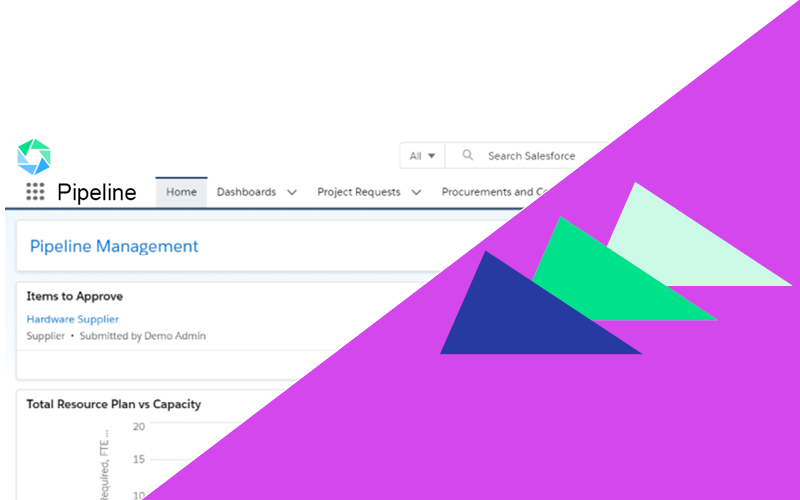 Our Pipeline App empowers your team to plan ahead and forecast for upcoming procurement activities.
Our Pipeline App empowers your team to plan ahead and forecast for upcoming procurement activities. 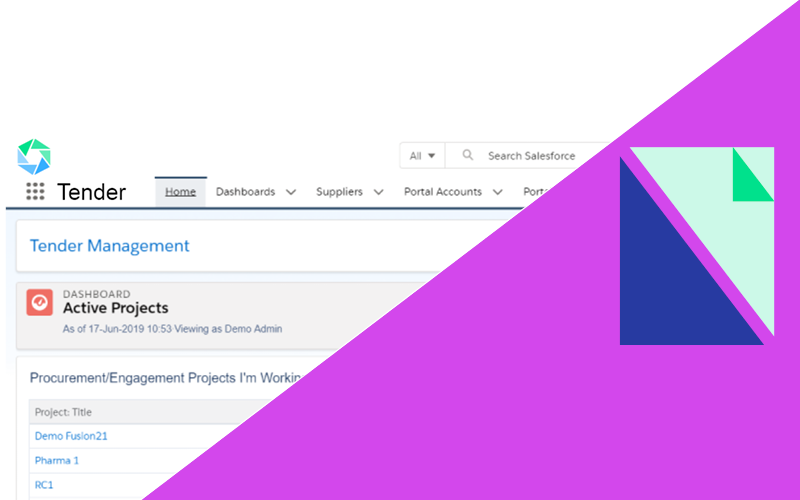 The Tender App allows your team to visualise all sourcing activities within your Atamis platform, from issuing tenders to receiving bids.
The Tender App allows your team to visualise all sourcing activities within your Atamis platform, from issuing tenders to receiving bids.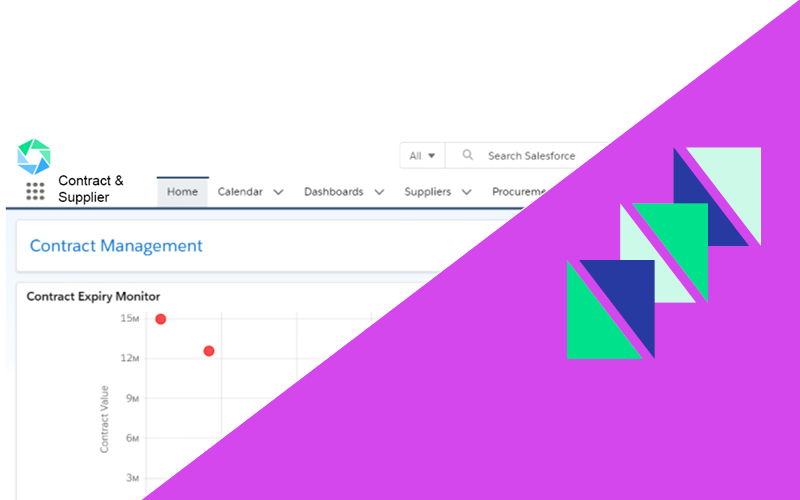 Our Contract & Supplier App puts your team in firm control of your key supplier relationships and provides a central repository for all contracts.
Our Contract & Supplier App puts your team in firm control of your key supplier relationships and provides a central repository for all contracts. 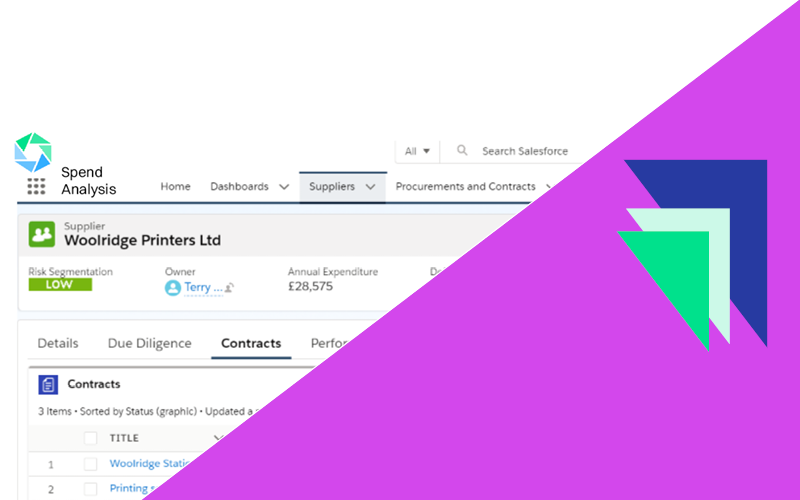 Our Enhancers ensure your solution is tailored to your needs. Pick and choose additional functionality that fits your requirements.
Our Enhancers ensure your solution is tailored to your needs. Pick and choose additional functionality that fits your requirements. 